Introduction
Thanksgiving is almost here, and the holiday marathon of turkey, stuffing, and family gatherings comes with it. But between perfecting your cranberry sauce and avoiding your great aunt’s probing questions, there’s one thing no one wants on the menu: food poisoning. Or worse—an unexpected allergy flare-up from that mystery nut crumble on the pie.
While many of us are familiar with the basics of thoroughly washing hands and cooking the turkey, preparing a safe Thanksgiving feast requires more than following tradition. The kitchen on Turkey Day can be a minefield of potential hazards, from bacteria lurking in undercooked dishes to hidden allergens in beloved recipes. And with the rise in food sensitivities and allergies, especially among kids and young adults, it’s more important than ever to prep with all your guests in mind.
So, before you dive into the holiday’s most famous meal, take a moment to learn about the essential food safety tips that can keep the turkey juicy, the stuffing delicious, and everyone healthy. And for those looking to avoid any surprises, Walk-In Lab’s blood tests can help identify unknown allergies, ensuring you’re as ready for Thanksgiving as your favorite stretchy pants.
Understanding Food Poisoning and Food Allergies
Understanding the ins and outs of food poisoning and food allergies is crucial for a safe and enjoyable Thanksgiving dinner. These uninvited guests can pose a real risk, especially when preparing a large holiday meal where dozens of ingredients come together, often in a bustling kitchen. Here’s a breakdown of what they are and why taking precautions is essential to avoid these health pitfalls.
What Is Food Poisoning and Why Does It Happen?
Food poisoning is an illness caused by consuming contaminated food or drink, often the result of bacteria like Salmonella or E. coli lurking in undercooked or improperly handled ingredients. Turkey, stuffing, and any perishable foods can become hotspots for bacteria if they aren’t stored, thawed, and cooked properly. And with Thanksgiving dinner lasting hours, sometimes leftovers left at room temperature for too long can harbor bacteria that continue to grow and multiply.
What Are Food Allergies and How Can You Prepare?
Thanksgiving recipes that include common allergens, such as dairy in mashed potatoes, nuts in pies, and gluten in stuffing, can be a tricky meal for people with food allergies. Hosting guests with food allergies? Communication is not just important, it’s key. Ask about any dietary restrictions before planning your menu. You can also label dishes clearly, especially for common allergens like nuts, dairy, gluten, and shellfish. When possible, consider using substitutes (like gluten-free flour for gravy thickening or nut-free options for desserts) to keep everyone safe.
Thanksgiving Tip:
If a guest has a serious food allergy, consider preparing a few “allergy-friendly” dishes to ensure there are safe options available, or keep any common allergen-heavy dishes separate from the rest of the spread.
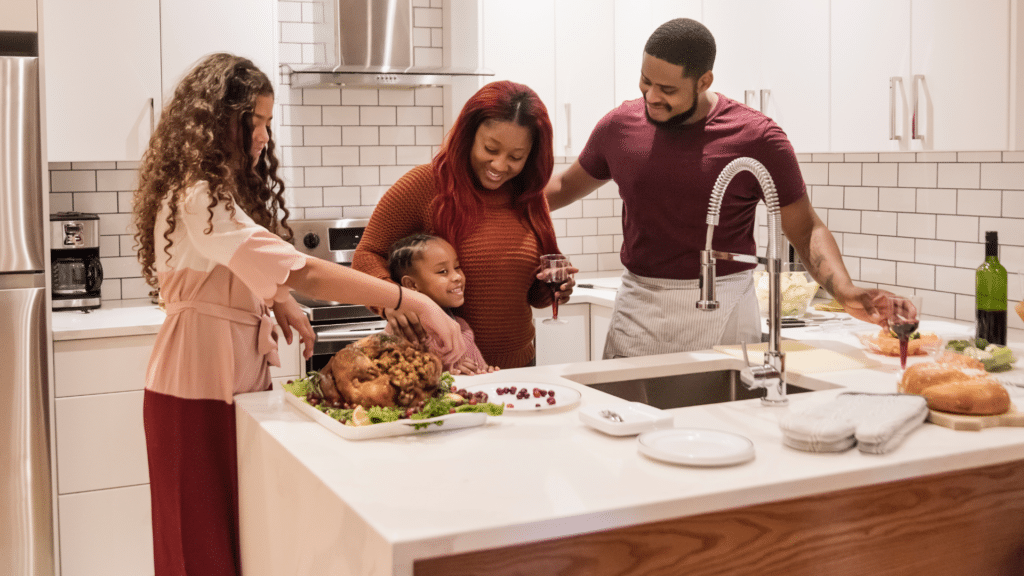
Essential Turkey Safety Tips
Ah, the Thanksgiving turkey—a holiday centerpiece that demands respect and, yes, some careful handling. These turkey safety tips will help you avoid the culinary pitfalls that can lead to foodborne illnesses.
1. Storing Turkey Properly
• Keep your frozen turkey in the freezer until ready to thaw, ideally at 0°F or below.
• Store in a monitored location (not a garage or basement) to avoid fluctuating temperatures.
2. Thawing Turkey Safely
• Refrigerator Thawing: Allow 24 hours for every 4-5 pounds of turkey.
• Cold Water Thawing: Submerge in cold water, changing every 30 minutes. Allow about 30 minutes per pound.
• Microwave Thawing: Follow microwave instructions and cook immediately after thawing.
Turkey Thawing Tip:
Never thaw your turkey on the counter! Bacteria can multiply rapidly, putting it in the “danger zone” (40°F-140°F).
3. Handling Turkey to Prevent Cross-Contamination
• Wash Hands Frequently: Use soap and water for at least 20 seconds.
• Use Separate Cutting Boards: Designate one cutting board for raw turkey and another for produce or other foods.
• Avoid “Double-Dipping” Surfaces: Don’t place cooked food on any surface that held raw turkey.
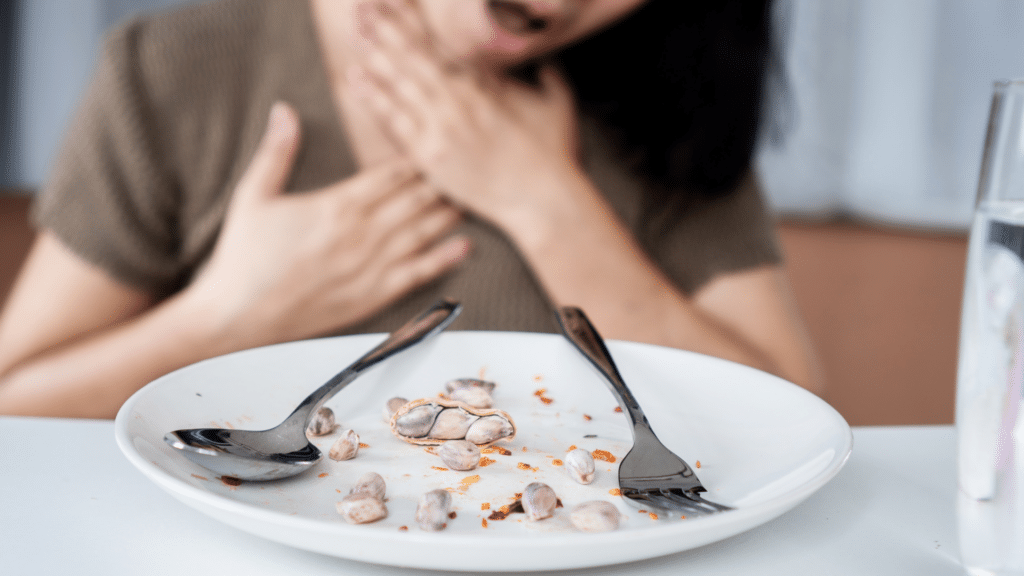
Preparing for Guests with Food Allergies
Hosting guests with food allergies requires a little extra planning. Here’s how to create an inclusive and allergy-friendly Thanksgiving spread.
1. Identifying Common Food Allergens in Thanksgiving Dishes
• Dairy: Often found in mashed potatoes, casseroles, and certain pies.
• Nuts: A common ingredient in some stuffing, desserts, and garnishes.
• Gluten: Present in many gravies, stuffing, and rolls.
• Eggs: Common in baked goods like pies and cakes.
2. How Food Allergy Testing Can Help
Walk-In Lab offers simple blood tests that identify allergies to common ingredients, which can be helpful for anyone who has experienced unexplained reactions in the past.
3. Tips for Allergy-Friendly Meal Prep
• Use Substitutes: Gluten-free flour for gravies, dairy-free butter, and nut-free toppings.
• Prepare Separate Dishes: Consider making allergen-free versions of some dishes.
• Label Your Dishes: Clearly mark dishes containing common allergens.
Cooking Turkey and Stuffing to Safe Temperatures
1. Cook Stuffing Thoroughly
• Cooking stuffing separately allows you to better control its temperature.
• Ensure stuffing reaches an internal temperature of at least 165°F.
2. Cook Turkey to the Right Temperature
• Set Oven to 325°F or Higher
• Check Temperature in Three Key Spots:
• Thickest part of the breast
• Innermost part of the thigh
• Joint where the wing meets the body
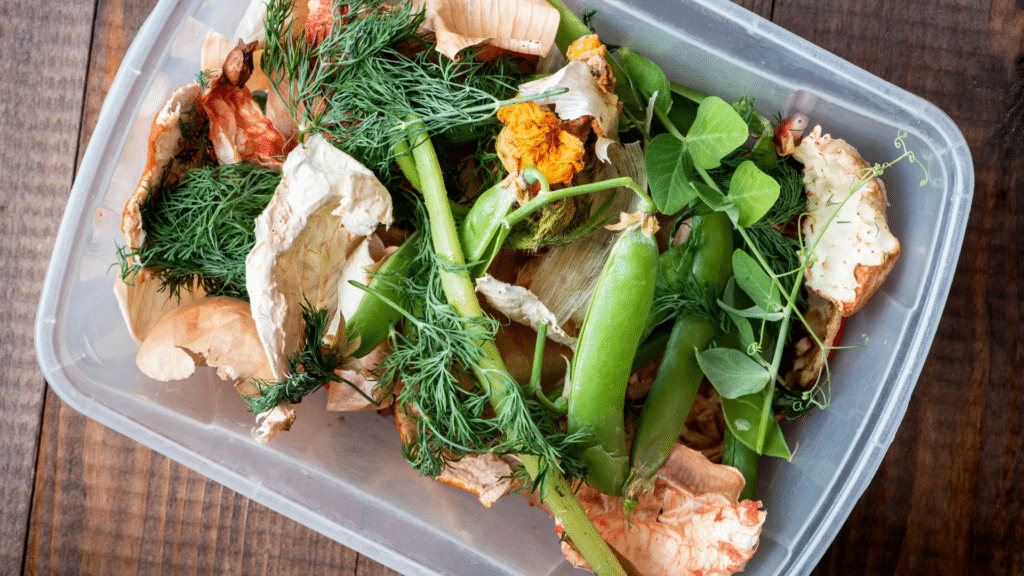
Storing and Reheating Leftovers Safely
1. Proper Storage for Leftovers
• Refrigerate Promptly: Within two hours of cooking (or one hour in a warm room).
• Cool Large Portions Quickly: Cut up turkey or divide large dishes for faster cooling.
• Label and Date: This helps you keep track of what needs to be eaten soon.
2. Reheating Tips for Safety
• Heat to 165°F: Use a food thermometer to make sure leftovers are heated evenly.
• Avoid the Microwave’s “Cold Spots: Stir food halfway through reheating to distribute heat.
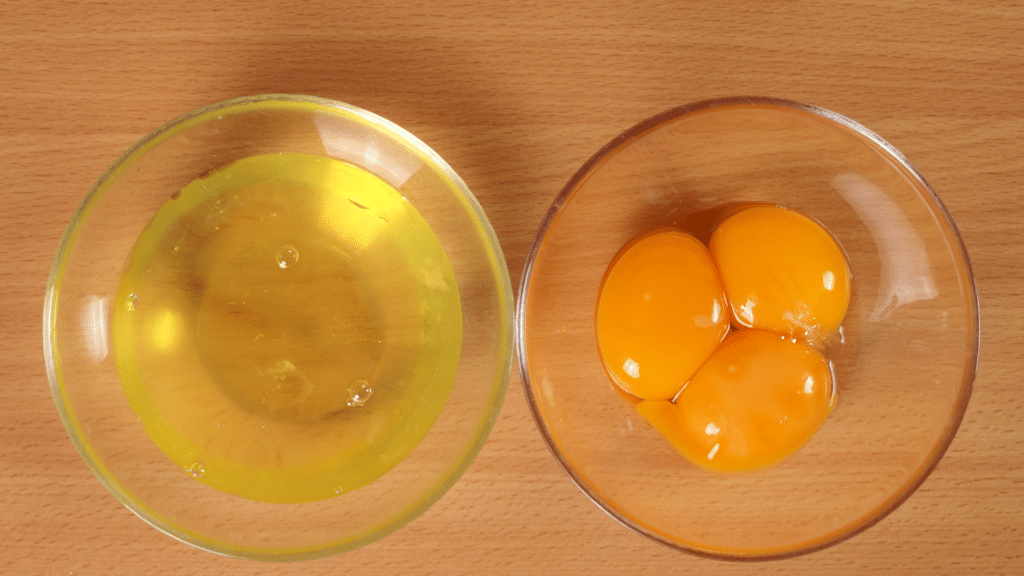
Safety Tips for Other Foods
1. Keep Foods Separated
• Grocery Store: Place meat, poultry, and seafood in separate bags or containers.
• Fridge Storage: Store raw meat on the bottom shelf in a leak-proof container.
• Meal Prep: Use different cutting boards for raw meats and ready-to-eat items.
2. Cook Foods Thoroughly
• Meat and Seafood: Use a thermometer to check internal temperatures.
• Egg-Based Dishes: Cook to at least 160°F.
3. Avoid the “Danger Zone”
• Keep hot foods hot (above 140°F) and cold foods cold (below 40°F).
4. Use Pasteurized Eggs for Dishes with Raw Eggs
• Buy Pasteurized Eggs: Use for recipes like eggnog and hollandaise sauce to avoid Salmonella.
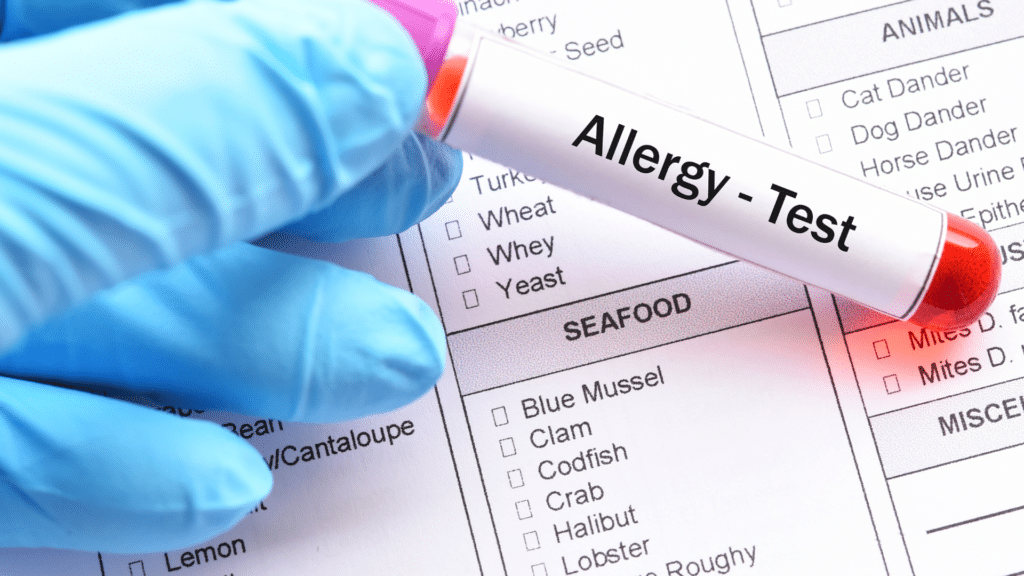
The Role of Blood Tests for Health and Safety
Blood tests for food allergies provide peace of mind to hosts and guests alike, allowing everyone to enjoy Thanksgiving without fear of unexpected allergic reactions.
1. Benefits of Food Allergy Blood Tests
• Food Allergy Tests: Quickly identify specific allergens like dairy, nuts, gluten, and more.
2. When to Consider an Allergy Test
• Unexplained Symptoms: Digestive discomfort, skin reactions, or other symptoms after eating.
• Peace of Mind During the Holidays: Confirm known allergies before the holiday for a safe experience.
Thanksgiving Tip: Testing for the Whole Family
If multiple family members have dietary restrictions or if you’re planning to host people with unknown allergies, consider having everyone undergo food allergy testing before the holiday. This preparation can prevent surprises at the dinner table and allows you to tailor your menu to ensure that everyone has safe and delicious options.
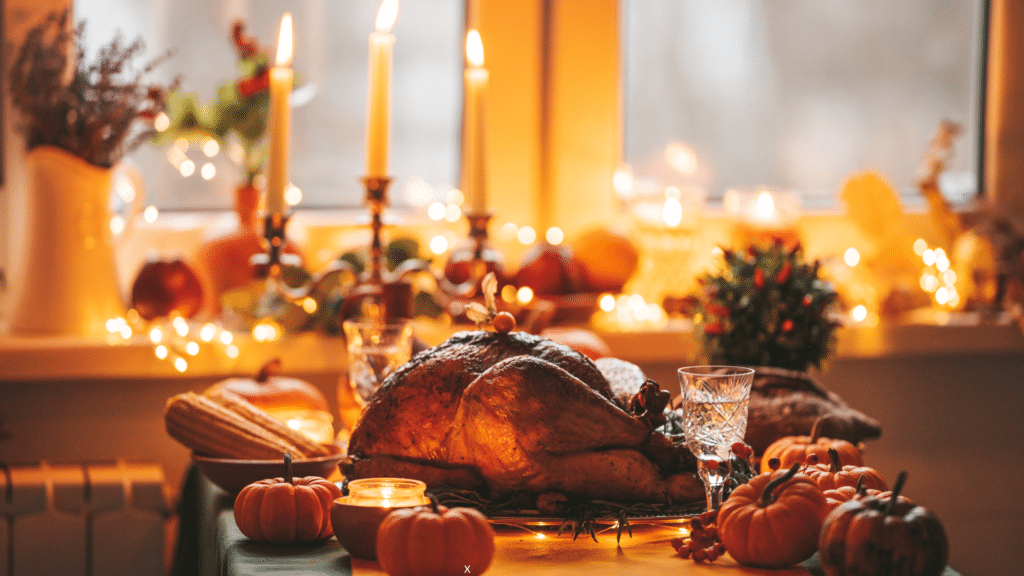
Conclusion: Enjoy a Safe and Happy Thanksgiving
This Thanksgiving, a little preparation goes a long way in keeping your holiday healthy and enjoyable. With food safety practices and the option of convenient blood allergy testing from Walk-In Lab, you can focus on what truly matters: spending time with family, sharing gratitude, and savoring every bite.
By using food safety tips, cooking mindfully, preparing allergy-friendly dishes, and considering proactive allergy testing, you’re setting yourself up for a Thanksgiving that’s as safe as it is delicious.
